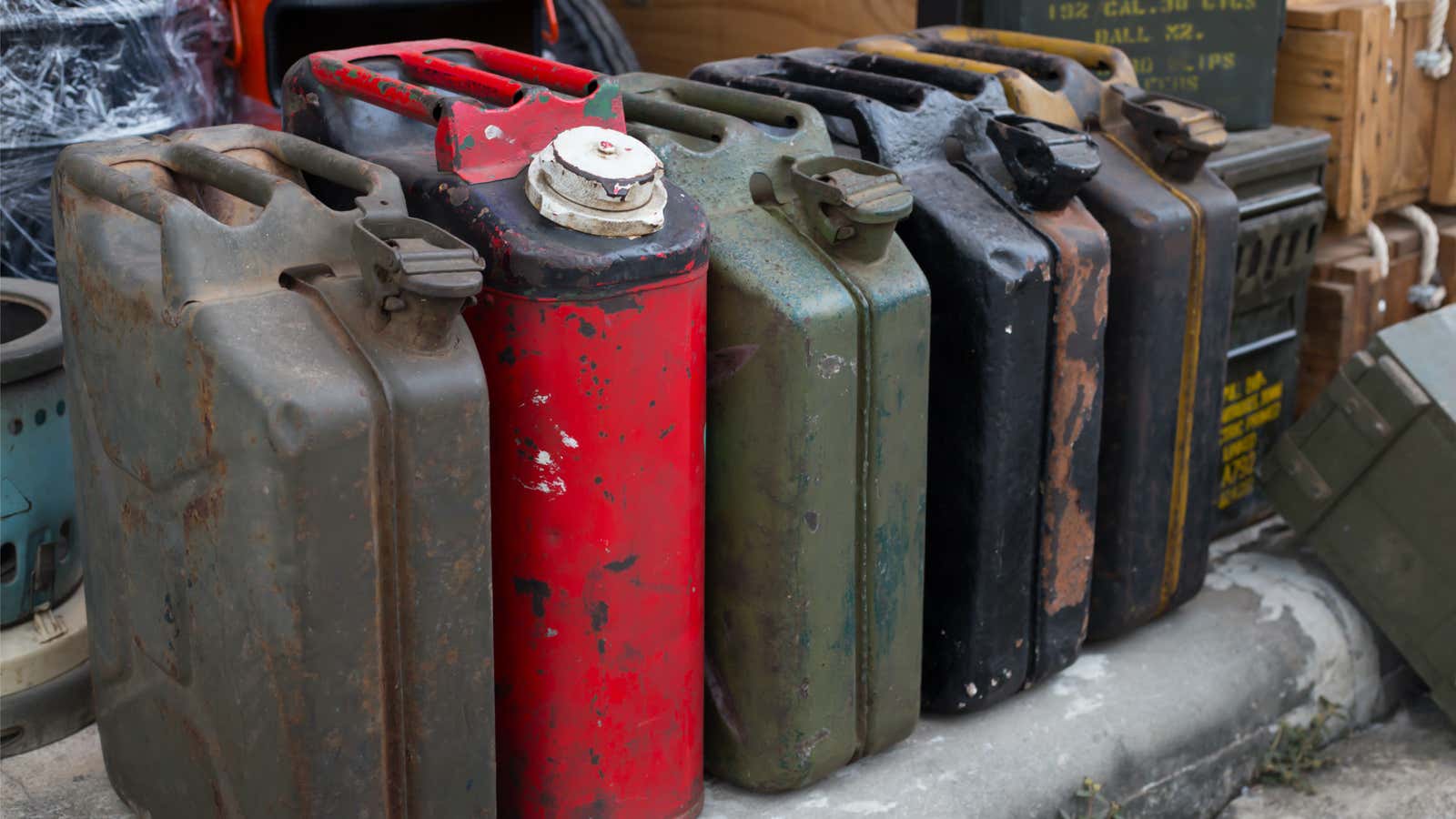How to Safely Dispose of Old Gasoline

If you store gasoline (hopefully not in plastic bags or other random containers ), it’s important to know that it can go bad and after a while you won’t want to put it in your car or lawnmower. But you shouldn’t throw it away on the street either. Here’s what you need to know about the safe disposal of old or expired gasoline.
How long does it take for the gas to stop working?
Gasoline is volatile, which means that it is practically not a liquid. All its molecules dream of escaping and floating freely in the air, and if the container lid is not tightly closed, they will. Gasoline also oxidizes easily, which means that its molecules break down on contact with certain other chemicals, including oxygen. This property makes it so flammable and so good for engines. When you oxidize fuel very quickly, you get a fire or, in your car’s engine, a series of tiny explosions that set pistons in motion.
When gas oxidizes slowly – be it a gas canister in a garden shed – you end up with a bunch of molecules that aren’t quite the same as regular gasoline. They may not power your engine as they should, and in some cases, they can clog fuel lines.
For these reasons, stored gasoline cannot be expected to last forever. Three to six months is the best you can hope for when stored properly; if it is in a jar with a loose lid or has been exposed to heat, it may last even less time.
What happens if you drain the old gasoline somewhere?
You probably intuitively know that neither your city’s sewer system nor your local ecosystem will be happy to swallow a full tank of gasoline. The gas is corrosive, toxic and flammable, and in these places it simply does not belong.
Draining gas is illegal almost everywhere – check your local laws – and the fines can be significant. Plus, if you’re already trying to figure out where to drain the gas so you don’t get caught, you’re an asshole.
How to safely drain old gas
Your city or county must have some kind of procedure for this, which you can find on their website. You can also google “hazardous waste disposal [your region]” for other options.
Follow their instructions, but usually you will have to do something like this:
- Make sure the gasoline is in an approved container (again, no plastic bags or random buckets ).
- Call the landfill ahead of time for opening hours, regulations, and what else they require. You may be planning to dispose of old paint cans or car batteries at the same time.
- Dispose of it using approved methods and enjoy the peace of mind of shaking flammable liquid off your hands without poisoning the environment.